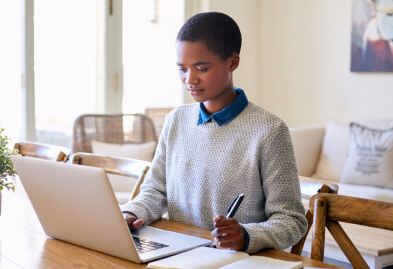
How to Reduce Technical Debt During Liferay DXP Upgrades: A Modernization Guide
Upgrades shouldn’t slow innovation. Discover how Liferay and Veriday help teams reduce technical debt and evolve digital experiences without disruption.
Millions of school children across the globe have been told to stay at home during the coronavirus lockdown, leaving parents to juggle between teaching their children while also maintaining their own workloads.
The UN estimated that with school closures around the world, over a billion children have been missing education. Many of those children find it difficult to suddenly change their normal weekday routines and have their parents as their teachers. So, the role parents are playing during these times will have a big impact on their children’s education. And if you’re one of those parents, just know that even the world’s best teachers admit that their own kids are not so happy with being “taught” by them.
It may be challenging to find ways to continue your “little ones” learning while also keep them entertained. So, we have some tips on how to stay creative and keep your kids engaged while maintaining your mental health:
Each child has different ways of learning, and while some kids may learn better in groups others may do better on their own. On top of changing the environment, switching to online learning can add extra challenges for some kids because it requires self-regulated learning skills. It also depends on the age groups as older kids tend to work better on their own for a longer period of time, while younger children may have shorter periods of focus, so doing 20-30 minutes of learning for one subject may be best for them.
Acknowledge that this is a great opportunity for your child to learn at their own pace and take as much as needed. They no longer have to sit through lessons that normally last an hour if they don’t need to. Just because they were at the school for 6 hours, it doesn’t mean that they were being taught book lessons the entire time. Take time to observe your child and the learning style that they respond best with and don’t make comparisons with other kids or judgments if your schedule doesn’t go as planned. And if you noticed that your child seems to learn better in groups, schedule online study sessions with one or more of their classmates.
Make sure to get them up to have breakfast as if they are going to the school and get dressed so they don’t start learning in pyjamas. While building your schedule, find what works best for you and your child. Often times schools have subjects such as Math and English in the morning and PE in the afternoon, but if your child prefers to do Math in the afternoon just go with it.
Have a daily routine that is similar to the school schedule where you have breaks between subjects. Keep in mind that this is a great opportunity for you to spend quality time with your children so make the most of it by involving some time together even just to go to the garden to play or cook together in the kitchen.
Building a routine will benefit your family, but each day will be different so take it easy, both for you and your children.
You may be worried about your children spending too much time playing computer games or watching tv, but these free times can be integrated into your daily schedules. Just like they would have at school, having a strict separation between learning time and playtime can be beneficial for them and yourself as well.
Try to make these free times purposeful such as making sure some time is dedicated to educational content on their tablets or getting them reading books. You can also use those breaks to do activities as a family and work in the garden together or cook in the kitchen. During these breaks, it’s also important for children to communicate with their friends so that they feel connected to other kids in their age group.
Keeping children active is just as important as their learning schedule so get your kids moving so they feel energized and optimistic. Because they are used to being able to run around on school grounds, they need some new ways to wear off some of that bounciness. If you don’t have a garden, your kids might enjoy doing yoga from some of YouTube yoga channels for kids.
We are all going through a big transition and it is very challenging for both kids and parents. You might be experiencing some anxiety about your children are falling behind in class, but schools and teachers are doing an excellent job of assigning work to children and will be more than understanding when it comes to helping them make-up any lost ground.
So be kind to yourself and your children and remember that this is just a temporary situation and not the end of the world. There might be positive things that will come out of this and children may start to enjoy learning in different ways and find new things to be inspired by and occupy themselves with.
